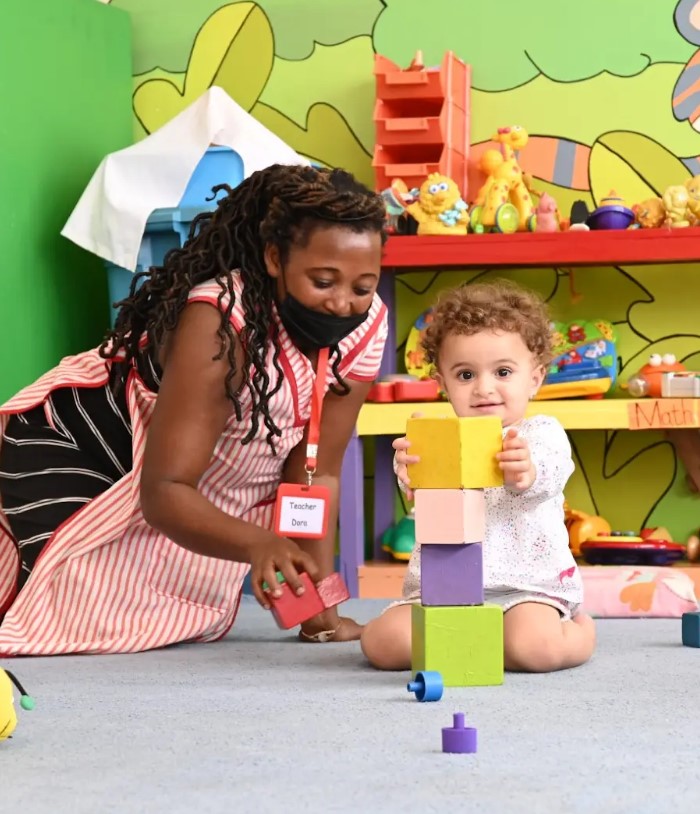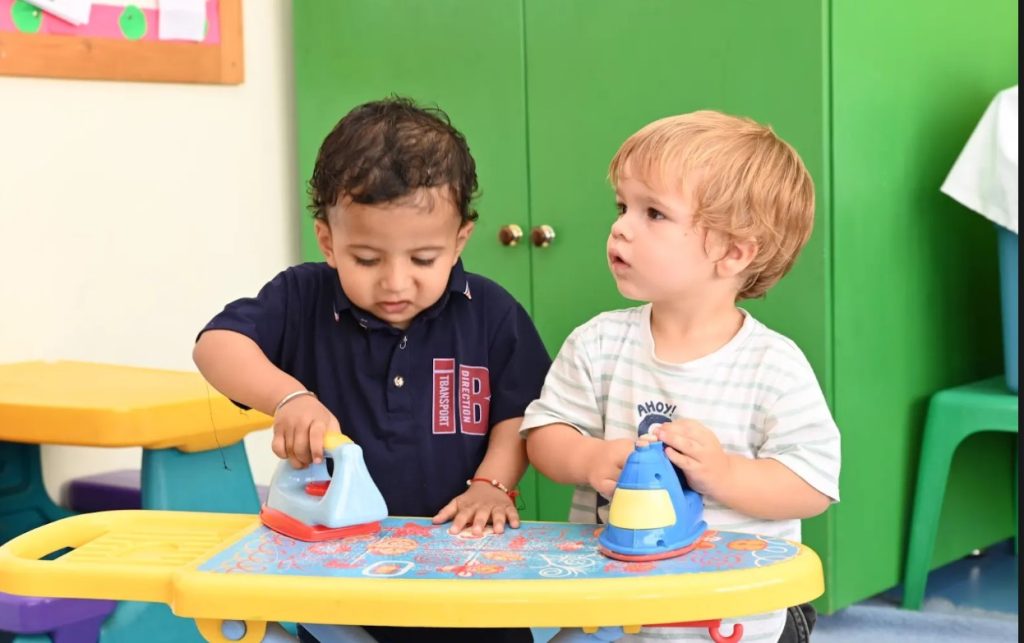DAY CARE - DAILY ROUTINE
18 MONTHS TO 3 YEARS

CRUCIAL AREAS OF DEVELOPMENT
- PERSONAL SOCIAL AND EMOTIONAL DEVELOPMENT
- COMMUNICATION, LANGUAGE AND LITERACY
- MATHEMATICAL DEVELOPMENT
- KNOWLEDGE AND UNDERSTANDING OF THE WORLD
- PHYSICAL DEVELOPMENT
- CREATIVE DEVELOPMENT
As we work with children 18 months to 3 and a half years, we facilitate development in the above areas learning, using various developmental activities which are planned to meet the child’s level of development.
- Working in small groups facilitates individual attention
- Hands on activities provide a rich learning experience
- Rotation allows children exposure to a different environment and variety of activities
Our aim is to see a child
- Love to come to school
- Part easily with parents (saying bye)
- Feel secure in school
- Develop a constructive relationship with teachers
- Perform simple tasks
- Undergo potty training
- Develop/learn proper table manners
- Respond to simple instructions
- Identify, sort and match objects according to colour, shape and size
- Develop eye-hand coordination
- Interact with other children
- Learn to share and socialize
- Develop sense of responsibility
- Develop speech, concentration, orderliness and many more
The play-way method is the best avenue to learning
Children are divided into four main groups. Each group has a main teacher, assistant teacher and helper whenever need arises. Cleaners are always close by to support whenever need arises.
